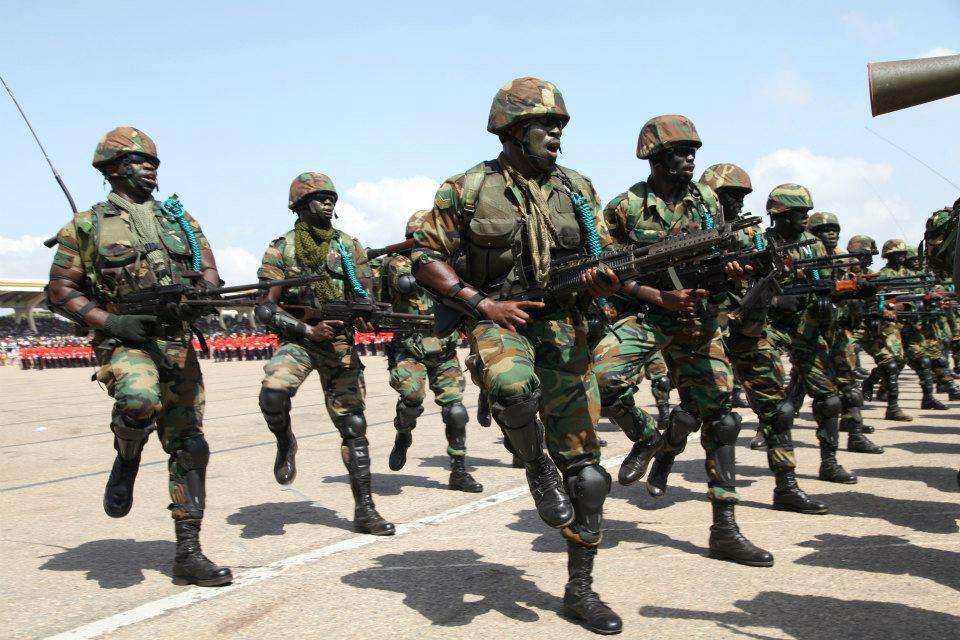
Need for military reserve force in Ghana
Recently, in December 2017, news broke of the untimely death of a young Ghanaian in New York who tried to rescue some neighbours who were trapped in an apartment that had caught fire.
Ghana’s Minister of Defence, Mr Dominic Nitiwul, joined the outgoing United States of America (USA) Ambassador to Ghana, Mr Robert P. Jackson, to organise a solemn memorial ceremony in honour of this brave young man, Private First Class (PFC) Emmanuel Mensah of the USA National Guard.
Advertisement
The honour done PFC Emmanuel Mensah was a recognition of his heroic actions.
The National Guard is a US military reserve force also found in most advanced countries.
Wikipedia defines a military reserve force as a “military organisation composed of citizens of a country who combine a military role or career with a civilian career.
They are not normally kept under arms and their main role is to be available to fight when a nation mobilises for total war…”.
The existence of reserve forces allows a nation to reduce its peacetime military expenditure, while maintaining a force prepared for war.
Reserve forces’ members maintain military skills by training regularly.
In wartime, they are deployed as replacements for combat losses and to free up regular troops for actual combat.
In peacetime, reservists are used for disaster relief, peacekeeping duties, etc.
Article 51 of Ghana’s Constitution and Armed Forces Act, 1962 (Act 105) provide for the creation of a “Regular Force; a Regular Reserve; a Volunteer Force and Volunteer Reserve”.
Currently, Ghana’s military reserve force consists mainly of retired military personnel.
Act 105 also grants the President authority to order the whole or part of the reserve force to be on continuing full-time military service.
Apart from the deterrent value of facilitating the maintenance of an effective fighting force at a relatively low cost, military reserve forces are, through the military training they receive, imbued with critical national values of honour, sacrifice, courage, patriotism, discipline and loyalty.
Also, a military reserve force that is community based can connect the military to the societies of which they are part.
A United Kingdom (UK) Ministry of Defence 2013 policy document, for instance, states inter alia, that “…reserves could enable the armed forces to become better integrated with, and understood by, the society from which they draw their strength.”
It is, thus, suggested that Ghana creates an enhanced military reserve force which will be proportionately represented in all 10 regions.
The cost involved in keeping such a force is minimal because military reserves stay in their own homes and feed themselves.
Ghana’s security environment exhibits immense challenges, thus eliciting the creation of a military reserve force to support active duty military personnel.
These threats include terrorism, environmental degradation, armed robbery, land/chieftaincy disputes, piracy, narcotic and small arms and light weapons trafficking, human trafficking, illegal fishing, etc.
Additionally, the Ghana Armed Forces (GAF) is engaged in military operations such as Operation Vanguard, Operation Calm Life, Operation Cow leg and Operation Halt, etc.
These military operations overstretch the GAF and cause a huge strain on soldiers, who incidentally are responsible for other primary roles.
The solution cannot be the employment of more soldiers due to cost implications.
Nonetheless, the government cannot fail to institute measures to combat internal security challenges.
Indeed, no serious country can toy with providing security for its people.
As former United Nations (UN) Secretary-General Kofi Annan once said at a 2006 Human Rights Conference in Geneva, “I argue that we will not enjoy development without security, or security without development.”
During the 2018 State of the Nation Address (SONA), the President underscored the relevance of security when he said: “It is vital that all of us give maximum support to the noble and brave men and women of our security services involved in Operation Calm Life, Operation Vanguard and Operation Cow Leg, aimed at guaranteeing the safety of our people, the integrity of our environment and peace of our nation.”
This concept visualises a military reserve force that consists of young Ghanaians to be taken from the Nation Builders Corps (NaBCO) which is expected to employ 100,000 young persons.
The National Service Scheme and Youth Employment Agency (YEA) are also expected to employ over 170,000 persons.
The government could legislate a bill to make the military reserve force concept compulsory for all serving NaBCO, NSS and YEA personnel, who are aged between 18 and 35.
In Ghana, it is recommended that the central government exercises centralised command over the reserve forces.
The government could create a secretariat, operating under the Defence Ministry, to directly coordinate the military reserve forces’ activities.
The concept of keeping military reserve forces has yielded strategic values to nations.
It is highly recommended that Ghana relies on Act 105 to create a military reserve force.



